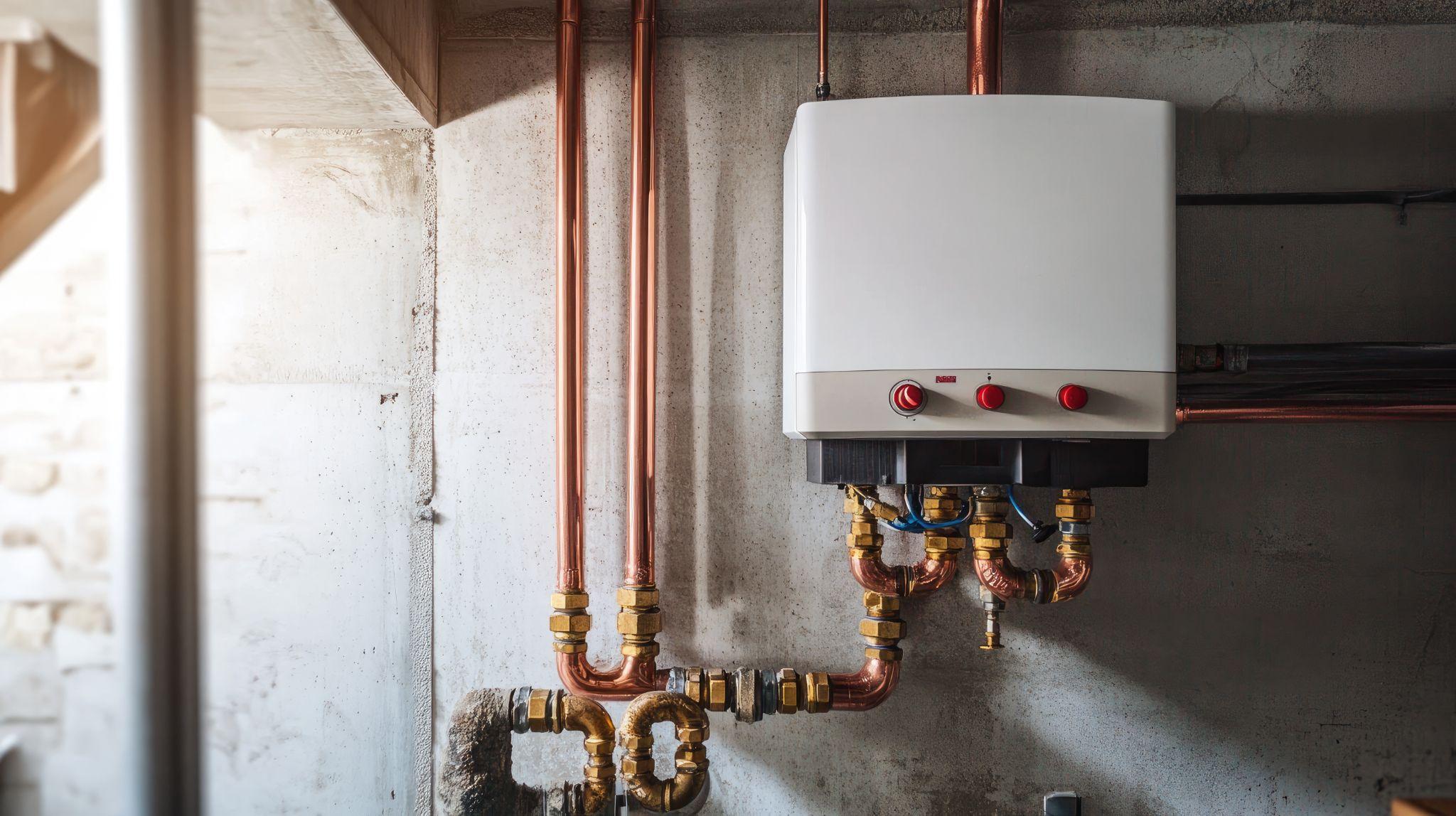How to Repair or Replace a Water Heater to Enhance Water Heater Performance

Few things disrupt your day like running out of hot water. If you’re noticing inconsistent temperatures, longer wait times, or rising energy bills, it could be time to evaluate your water heater’s performance.
Knowing whether to repair or replace a water heater can help you save money, avoid unexpected breakdowns, and ensure your home stays comfortable year-round.
Start by Evaluating the Age of Your Water Heater
The very first thing to consider when improving hot water performance is the age of your system. Most standard water heaters have a lifespan of about 8 to 12 years. If yours is over a decade old, even with routine maintenance, you may want to consider replacing it.
Older units often:
- Lose efficiency
- Consume more gas or electricity
- Take longer to heat water
- Develop recurring issues like sediment buildup or heating element wear
In these cases, replacing the unit may be the most cost-effective long-term solution, especially if repair costs begin to add up.
Performance Tips for Newer or Mid-Life Water Heaters

If your water heater isn’t too old and appears to be in good shape, there are several ways to enhance its performance without replacing it. These methods can help you get the most out of your unit while potentially lowering energy bills.
1. Install a Water Heater Blanket
If your water heater feels warm to the touch, it’s losing heat. A water heater blanket provides an insulating layer that reduces standby heat loss, allowing the unit to work less and save energy.
2. Insulate Hot Water Pipes
Exposed hot water pipes can also lead to heat loss. Insulating them ensures water stays warmer longer as it travels through your home. Some pipes may be difficult to access, so hiring a professional plumber is often the safest route.
3. Lower the Thermostat Setting
Turning down your water heater’s thermostat by 10 degrees (usually to about 120°F) not only improves efficiency but also reduces the risk of scalding. This simple adjustment can save energy and still provide comfortably hot water.
4. Schedule Annual Flushing
Minerals and sediment naturally settle at the bottom of your tank. This buildup can hinder heating performance and cause strange noises. Having your plumber flush the tank annually will help maintain efficiency and prevent long-term damage.
If you’re unsure whether fixing a water heater is a better choice than replacing it, a professional assessment can help guide your decision based on condition and usage patterns.
High-Efficiency Replacement Options

If you determine that replacement is the better route, today’s models offer a variety of energy-efficient options that cater to different home sizes and needs.
High-Efficiency Storage Water Heaters (Gas & Electric)
These models retain the traditional tank design but incorporate improved insulation, better thermostats, and higher energy ratings. Some even feature smart programming for customized heating cycles.
Tankless Water Heaters
Tankless systems heat water on demand, eliminating standby heat loss and offering high energy efficiency. They’re a great choice for households that need continuous hot water, want to save on energy bills, or are working with limited space. You can install a single whole-home unit or opt for smaller point-of-use models in high-demand areas like bathrooms or kitchens. Tankless heaters are a flexible, long-lasting solution for a wide range of hot water needs.
Heat Pump Water Heaters
These electric models use surrounding air to help heat water, functioning similarly to a heat pump HVAC system. For high-demand situations, an internal heating coil supplements the heat when needed. These are among the most efficient options available today, making them ideal for eco-conscious homeowners.
FAQs
How do you know when to replace a water heater?
If your water heater is over 10 years old, requires frequent repairs, or isn’t providing consistent hot water, it may be time to consider a replacement. Signs like rust-colored water, rumbling noises, or visible leaks often indicate serious internal issues.
Can a water heater be repaired?
Yes, many common issues—like faulty thermostats, heating element failures, or sediment buildup—can be fixed. The repairability depends on the specific problem and the age of the unit. Routine maintenance and minor problems are often handled quickly and effectively by a qualified hot water heater repairman.
How do you fix a hot water heater?
Fixing a water heater depends on the issue. Common repairs include resetting the thermostat, replacing a heating element, flushing out sediment, or relighting the pilot light. It’s best to have a professional inspect the unit to ensure safe and accurate repairs.
How much does it cost to repair a water heater?
Water heater repair prices vary based on the type of unit and the nature of the problem. Minor issues like thermostat replacements are generally less costly, while more involved repairs—such as water heater heating element repair—can be more expensive due to parts and labor. In cases where multiple components are failing or the unit is older, replacement may be the more cost-effective long-term solution.
Get Expert Help with Repairs or Replacements

No matter if you’re facing a total breakdown or just looking to enhance performance, knowing when to repair or replace your water heater is key to managing your home’s comfort and energy costs. From sediment flushing to insulation upgrades, small improvements can extend the life of your unit. But when it’s time to upgrade, newer models offer big benefits in performance and efficiency.
If you need a professional assessment, water heater repair services, or assistance choosing a new system, contact Christianson Air Conditioning & Plumbing. We proudly serve homes in New Braunfels, Temple, San Antonio, and the Austin Metro area. Let us help you decide the best route—whether it’s electric water heater repairs or a full system replacement.



Sorry, comments for this entry are closed at this time.